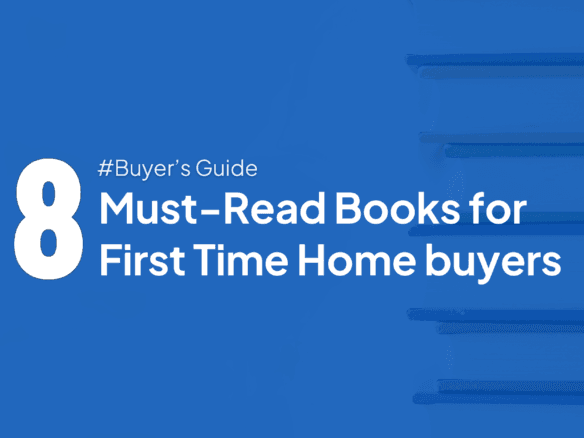The process of buying a home in India is both exciting and daunting. Whether you’re a first-time homebuyer or looking to upgrade, the decisions you make will have long-term financial and personal implications. To ensure you’re making an informed decision, it’s crucial to ask the right questions.
In this blog post, we’ll explore the ten most important questions you should ask before buying a home. These questions will help you understand the property, the buying process, and the potential challenges you may face.
Table of Contents
1. What is My Budget?
Before you even start looking at homes, it’s essential to know what you can afford. Understanding your budget helps you avoid falling in love with a property that’s out of your financial reach. Start by evaluating your monthly income, existing debts, and the amount you have saved for a down payment. Additionally, get pre-approved for a home loan to get a clearer picture of how much you can borrow. Keep in mind that your budget should not just cover the cost of the home itself but also closing costs, moving expenses, and any immediate repairs or renovations.
2. What Are the Hidden Costs Involved?
Beyond the purchase price, buying a home comes with several hidden costs that many buyers overlook. These can include property taxes, homeowner’s insurance, maintenance costs, and utilities. It’s important to factor these into your budget to avoid any unpleasant surprises down the line. Additionally, be aware of potential homeowners association (HOA) fees if the property is within a community that has one. Asking about these costs upfront will help you plan your finances better and prevent unexpected financial strain.
3. Why is the Home Being Sold?
Understanding the seller’s motivation can give you a significant advantage in negotiations. For instance, if the seller is relocating for a job and needs to sell quickly, they may be more willing to accept a lower offer. On the other hand, if the home has been on the market for a long time or if there are issues with the property, it might be a red flag. Knowing the reason behind the sale can also provide insights into potential problems with the property that you may not have considered.
4. How Long Has the Property Been on the Market?
The amount of time a property has been on the market can tell you a lot about its desirability and price. A home that’s been listed for an extended period might be overpriced, or there could be underlying issues that other buyers have noticed. On the flip side, if a property is newly listed, there might be more competition, and the seller might not be as open to negotiation. By asking this question, you can gauge whether it’s a good time to make an offer or if you should continue your search.
5. What is the Condition of the Home?
A thorough understanding of the home’s condition is crucial before making a purchase. Ask about the age of the roof, the state of the plumbing and electrical systems, and whether any major repairs have been done recently. It’s also wise to get a home inspection to identify any potential issues that might not be immediately visible. Knowing the condition of the home will help you avoid buying a home that requires expensive repairs soon after you move in.
6. What is the Neighborhood Like?
The neighborhood you choose can have a significant impact on your quality of life and the future resale value of the home. Ask about the safety of the area, the quality of local schools, the proximity to work, and access to amenities like grocery stores, parks, and public transportation. Visiting the neighborhood at different times of the day can also give you a better sense of what it’s like to live there. Additionally, talking to potential neighbors can provide valuable insights that you might not get from your real estate agent.
7. How Much Have Nearby Homes Sold For?
Understanding the market value of similar homes in the area can help you determine whether the asking price is fair. This information can also be useful during negotiations. If comparable homes have sold for significantly less, you may have grounds to make a lower offer. Conversely, if the home is priced competitively, you may need to act quickly to secure the property. Few real estate platforms like Squareyards can provide you with a comparative market analysis to help you make an informed decision.
8. Are There Any Restrictions on the Property?
Certain properties may have restrictions that can affect how you use your home. For example, if the home is part of an HOA, there may be rules about the exterior appearance of your property, noise levels, or even the types of pets you can have. Additionally, check if there are any zoning laws that could impact future renovations or expansions. Understanding these restrictions beforehand will help you avoid any surprises and ensure that the property aligns with your long-term plans.
9. What Are the Seller’s Disclosures?
Sellers are legally required to disclose certain information about the property, such as past repairs, known issues, and whether the home is in a flood zone. Reviewing these disclosures carefully can help you avoid buying a property with hidden problems. It’s also a good idea to ask if the seller has had any disputes with neighbors or if there are any upcoming assessments that could affect you as the new owner. If anything in the disclosure raises concerns, you may want to negotiate repairs or reconsider your offer.
10. What is the Future of the Area?
Finally, it’s important to consider the future prospects of the area where the home is located. Are there any planned developments, such as new schools, shopping centers, or public transportation projects? While these can increase the value of your home, they can also bring more traffic and noise. Additionally, research the area’s real estate market trends to determine whether property values are likely to increase or decrease. Investing in a home in a growing area can provide long-term benefits, both in terms of quality of life and financial return.
Conclusion
Buying a home is a significant investment, and asking the right questions can help you make a more informed decision. From understanding your budget to researching the neighborhood and evaluating the condition of the property, each of these questions plays a crucial role in the home buying process. By addressing these key areas, you’ll be better prepared to find a home that meets your needs and supports your long-term goals.



